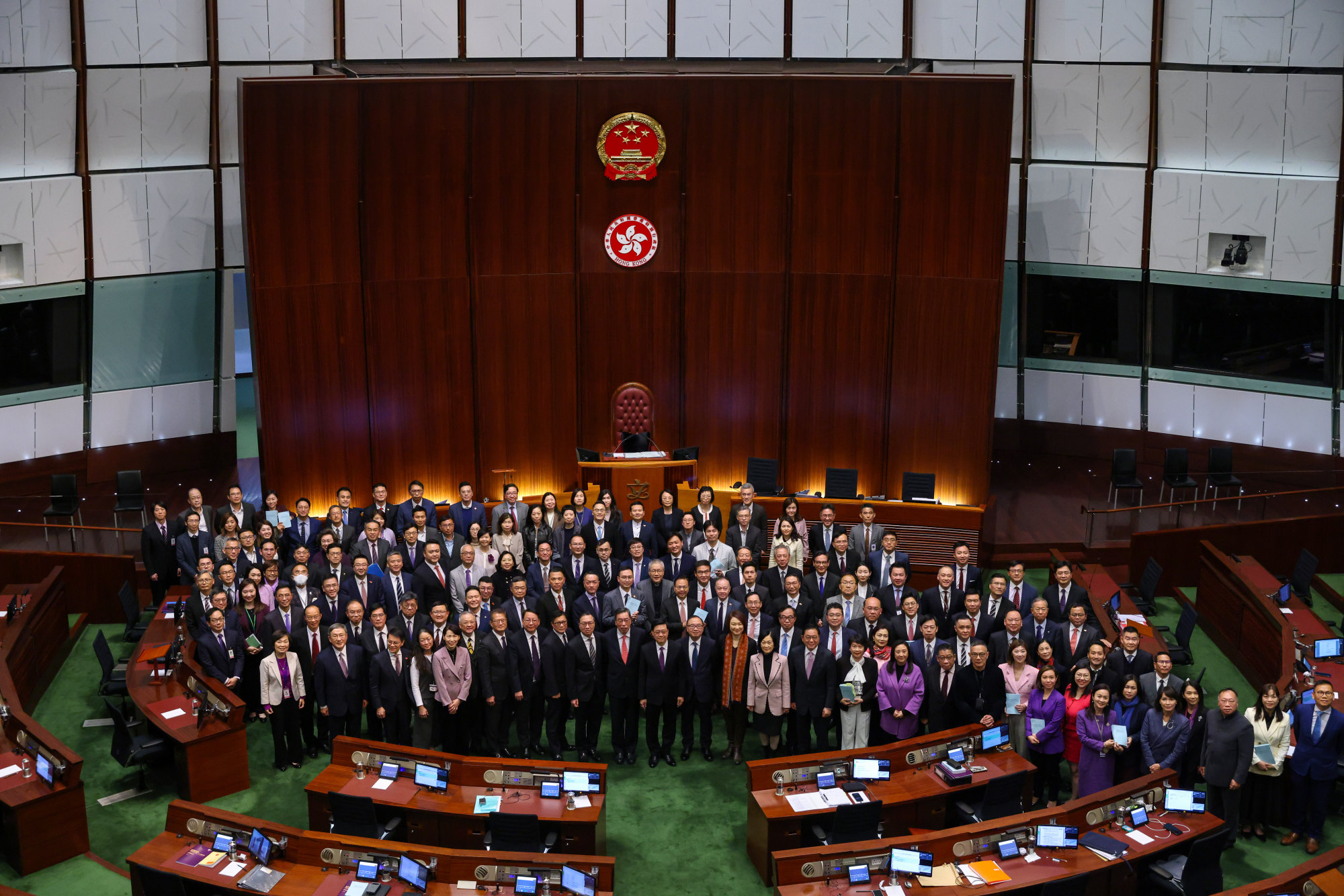Beijing slams Britain, EU for criticising Hong Kong domestic national security law, urges end to illusions of ‘colonial influence’
“Britain continues to stir up trouble and make arbitrary comments on Hong Kong’s situation, blatantly trampling on international law and basic norms governing international relations, which is out of its deep-rooted colonial mentality and teacher-like behaviour,” the spokesman said.
“China urges Britain to correct its position, face reality, give up the illusion of continuing its colonial influence in Hong Kong, and stop interfering in Hong Kong’s affairs and China’s internal affairs in any way.”
Hong Kong must fight blowback after passing Article 23 law: analysts
The spokesman said the Safeguarding National Security Ordinance would not affect the city’s continued high degree of autonomy and the rights and freedoms of its residents.
Crimes in the legislation were clearly defined and targeted only a small number of people who endangered national security, he said, adding that foreign institutions and personnel were fully protected by law in their regular activities.
He said the legislation would not affect normal commercial activity, market research and the free flow of information, but instead would create a more stable and predictable business environment.
Beijing’s foreign affairs arm in the city also said the United Kingdom had at least 14 laws to safeguard national security, and a new one introduced last year had many vaguely defined provisions and broad authorisation for law enforcement agencies.
The office said Britain should “put away its clumsy tricks of hypocrisy and double standards”.
A spokesman for the Chinese embassy in the UK also slammed Cameron’s remarks on Tuesday.
“The remarks by the British side distorted facts, confused right and wrong, and grossly interfered in China’s internal affairs,” he said. “China firmly opposes them.”

He said the legislative procedures were rigorous and standardised, and the content of the legislation was scientific and reasonable, with clearly defined elements of crimes and appropriate severity of penalties in line with international law and common practice.
The strongly worded statements were made just hours after the British and US governments criticised the city for passing the domestic national security law, claiming it was rushed through the legislature and its vague language created uncertainty for some residents.
Foreign Secretary Cameron warned of “far-reaching implications” in the law.
“The broad definitions of national security and external interference will make it harder for those who live, work and do business in Hong Kong,” he said. “The law fails to provide certainty for international organisations, including diplomatic missions, who are operating there.”
“It will entrench the culture of self-censorship which now dominates Hong Kong’s social and political landscape, and enable the continuing erosion of freedoms of speech, of assembly and of the media,” he said.
Eighty-nine lawmakers unanimously passed the legislation on Tuesday night at the end of a marathon session, fast-tracking the constitutionally mandated legislation which had been shelved for more than two decades because of initial public opposition.
Legislators approved 91 amendments to the bill, which is a constitutional requirement under Article 23 of the Basic Law and supplements the national security law imposed on the city by Beijing to end the anti-government protest chaos of 2019.
The new ordinance covers 39 offences divided into five categories: treason; insurrection, incitement to mutiny and disaffection, and acts with seditious intention; sabotage; external interference; and theft of state secrets and espionage.
After the bill was passed, city leader John Lee Ka-chiu announced the law would take effect on Saturday.
In a separate statement directed at the Council of the European Union, the commissioner’s office spokesman said the passing of a domestic law was an internal matter of the city and country.
“We urge the European Union to face up to Hong Kong society’s strong calls to support national security legislation, abandon hypocritical double standards and narrow prejudice, abide by the principles of international law and basic norms of international relations, and immediately stop interfering in Hong Kong affairs and China’s internal affairs,” he said.
The council said in a statement after the law was passed that the legislation could exacerbate the erosion of fundamental freedoms and political pluralism and potentially affect the work of the union’s office and consulates of its member states as well as their citizens and companies in the city.
US Department of State deputy spokesman Vedant Patel also said on Tuesday that the legislation “was fast-tracked through the non-democratically elected Legislative Council after a truncated public comment period”.
“They use phrases such as ‘external interference’, which is incredibly vague,” he said. “We’re analysing this legislation and we are taking a look at what the potential risk could be to not just US citizens but other American interests that we might have.”